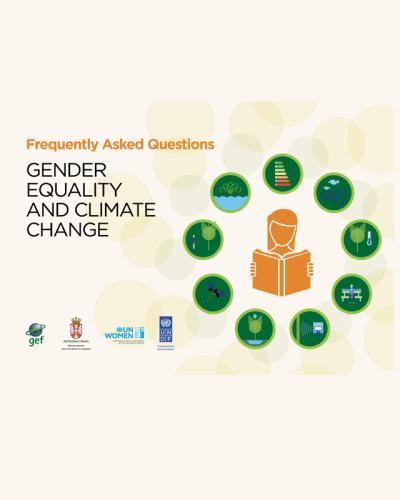Gender and Climate Change - TRAINING HANDBOOK

Around the world, gender shapes expectations, attributes, roles, capacities and rights of both women and men. Whilst climate change is non-discriminatory and affects everyone, women and men, due to differing social roles, may experience the impacts of climate change differently, with women often disproportionately negatively affected. Women, compared to men, often have limited access to resources, justice, mobility, and voice in shaping decisions and influencing policy.
UN Women Serbia recognizes climate change not only as one of the greatest global environmental and development challenges of our time, but also as a threat to human rights and equalities particularly gender equality. That is why in cooperation with the United Nations Development Program (UNDP), through the Global Environment Facility funded project on Climate Smart Urban Development (CSUD), UN Women Serbia has developed a framework of activities to support the work of the Ministry of Environmental Protection on the gender mainstreaming of climate smart actions.
UN Women advisory services have consisted of ensuring gender mainstreaming of the processes and results of the two CSUD Challenges – Open Data and Innovation Challenge through increasing the knowledge and skills of civil servants, representatives of NGOs and community groups to incorporate gender considerations into both challenges, and through reflecting differentiated impact of proposed actions to men and women. Thus, UN Women assisted in the development of gender-sensitive criteria under the Open Data Challenge and the Innovation Challenge for Mature Project Ideas through the elaboration of Frequently Asked Questions: Gender Equality and Climate Change, which details the linkages between gender equality and climate change thematic areas (i.e. adaptation, mitigation, technology transfer and development, finance and capacity development) and provides a practical gender mainstreaming checklist for climate change programming/ideas.




